- Changing strings to suit your style
- Guitar Strings for beginners
- Picking a guitar string gauge
- Changing guitar string brand
- What are the best Guitar Strings?
Nothing feels quite as good on your fingers as a fresh set of guitar strings. But over time, both electric and acoustic strings oxidise in the open air, and build up sweat and dirt from your hands – regardless of whether you wash them beforehand every time (although this might help to slow the process).
There are two indications as to when you should swap out for a new set: when your guitar tone begins to lose top-end brightness, and when the strings fight against your fingers as you play. If either of these scenarios are true, replace your strings with the help of our guide ASAP and we guarantee you’ll feel and hear the difference.
Changing strings to suit your style
Let’s also address changing strings on a deeper level. A lot of guitarists stick to the same set, usually recommended when buying one of your first guitars. It wouldn’t be a surprise if many of you were still using the same brand, type or gauge you acclimatised to way back when you started.
That might be completely fine – but could there be better strings out there to suit your playing now? It’s time to try something new and take your sound and playing up a game. Here’s a brief synopsis of why you should change the type of strings you use:
- Different string gauges help create a variety of sounds
- Your current guitar strings don’t feel comfortable
- You want to maintain appropriate string tension in alternate tunings
- Your strings aren’t of the required quality
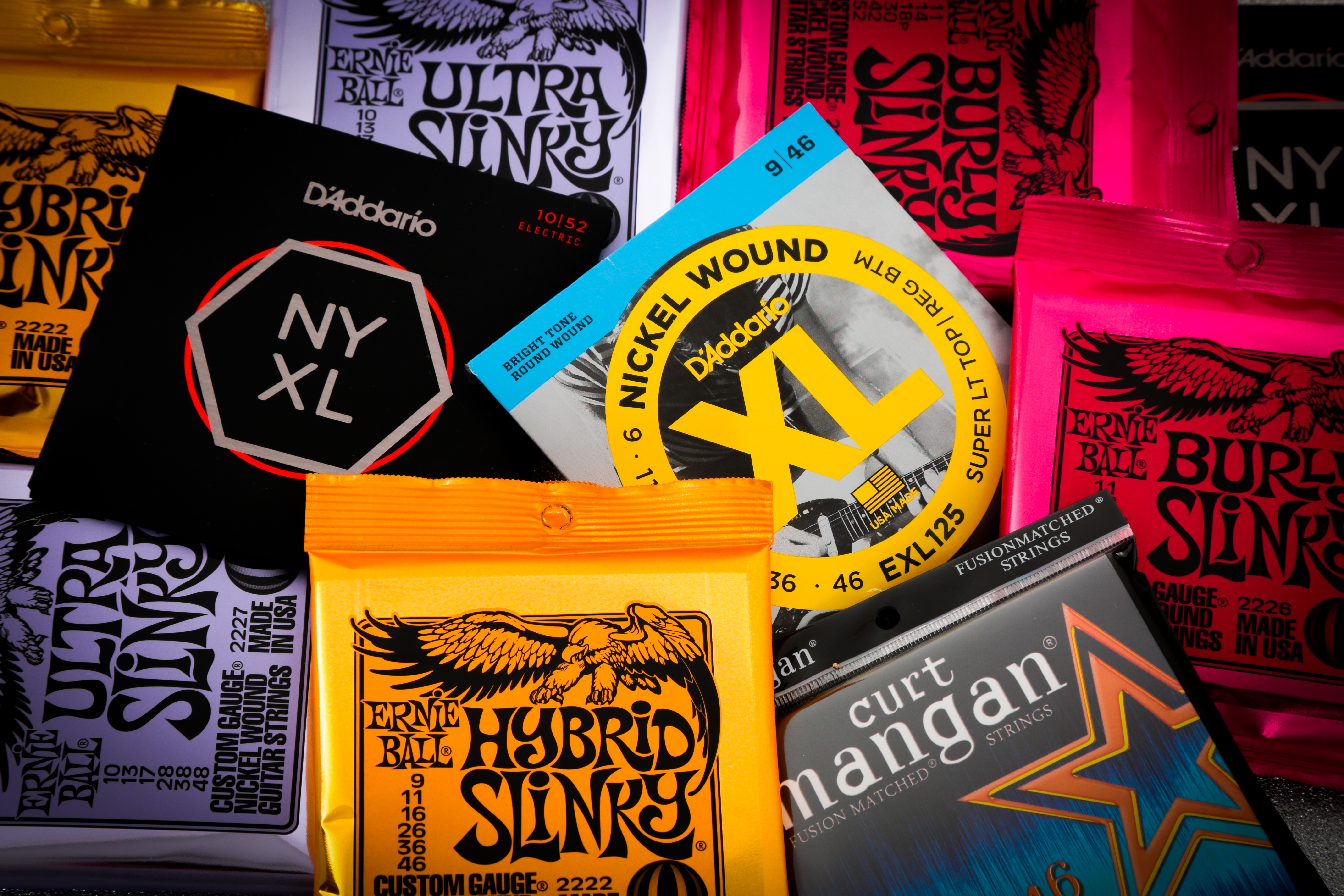
Guitar Strings for beginners
String preferences do naturally change over time as you become a more proficient guitarist. Thin gauge strings tend to be the popular choice for beginners, because they hold a lower amount of tension across the fretboard than thicker counterparts. This makes the guitar easier to fret, bend and pick the strings, and put less stress on inexperienced fingers.
At this early stage, a consistent rule of thumb is to stick to packs of 8s or 9s from the likes of the Ernie Ball Slinky range. These aren’t too heavy on the fingertips or the wallet if you decide the guitar isn’t for you. Once you’re past this early stage of playing, the choices you make will follow closer to the style of music you like. Just as you would a guitar or amp, you’ll want to adjust your setup to suit a particular playing style when you’ve got all the basic techniques down. Strings play a massive role in the way your instrument sounds and reacts.
Picking a guitar string gauge
Manufacturers make different string gauges to suit certain tunings and genres. That isn’t to say you can’t play heavy metal with thin nickel strings, for example. But it is worth relying on the tried and tested combinations to get into the ballpark you want.
Guitar strings fall into four major groups: light, medium, heavy and hybrid sets. Check out our blog on string gauge to get a detailed breakdown on each type. Since you were most likely recommended thin strings at the beginning of your guitar journey, it’s worth experimenting with heavier gauges to get a more rounded idea of what works for you.
Rock and metal guitarists will definitely want to give heavier strings a go for their beefed-up tone and tight feel. Players who use half-step, whole-step or more extreme tunings will feel right at home, as thicker strings deal with the lowered tension as you detune.
Some string packs swap out just a couple of specific gauges in order to suit alternate tunings. Say you’re playing in an open tuning; you’ll want your first, fifth and sixth strings to be heavier than usual to maintain tension lost when you tune those strings. A similar theory would apply if you’re using drop tunings.
Have you ever wanted three lighter top strings for super bendy solos and three lower strings for chunky riffage? Hybrid sets are the ones for you.



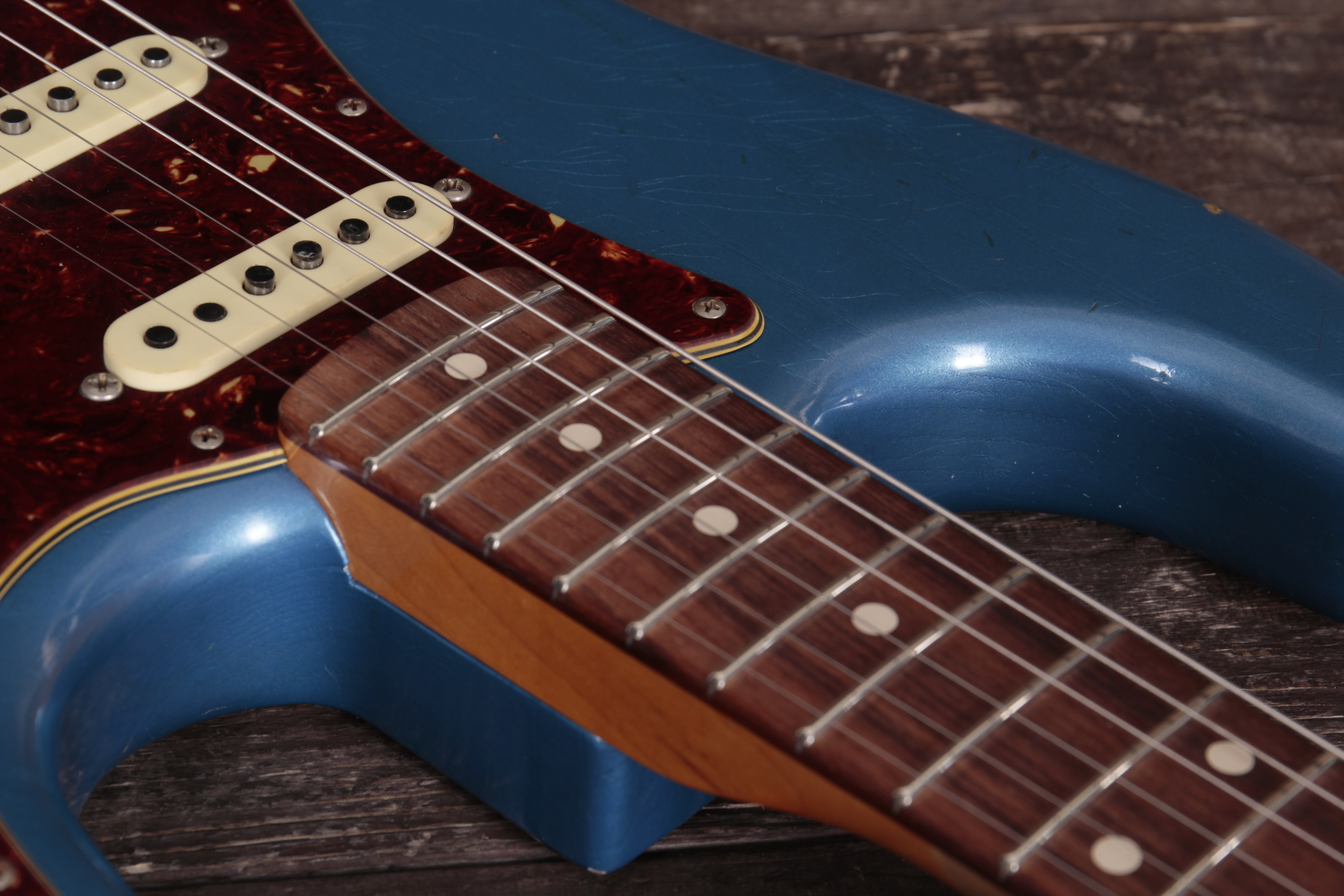
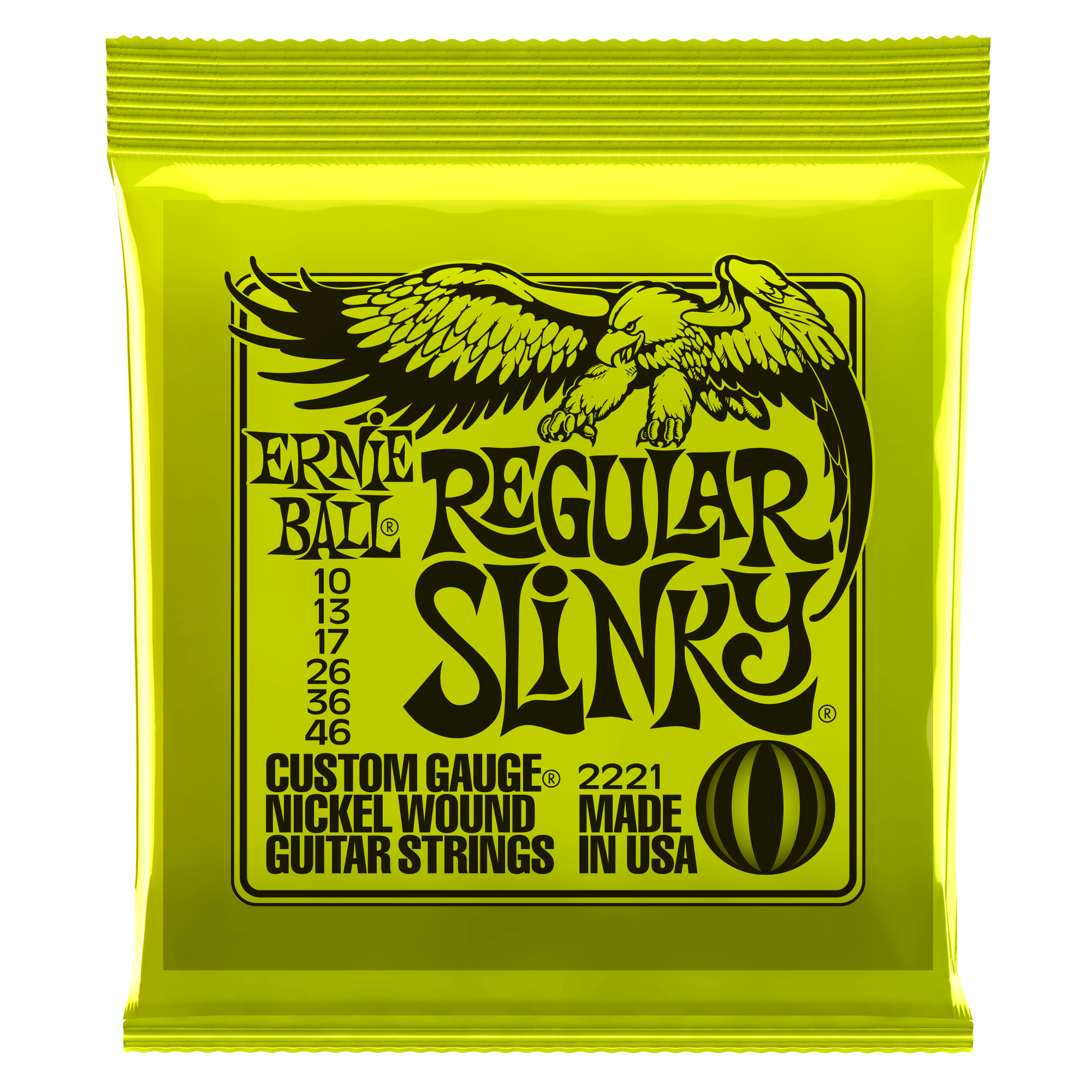
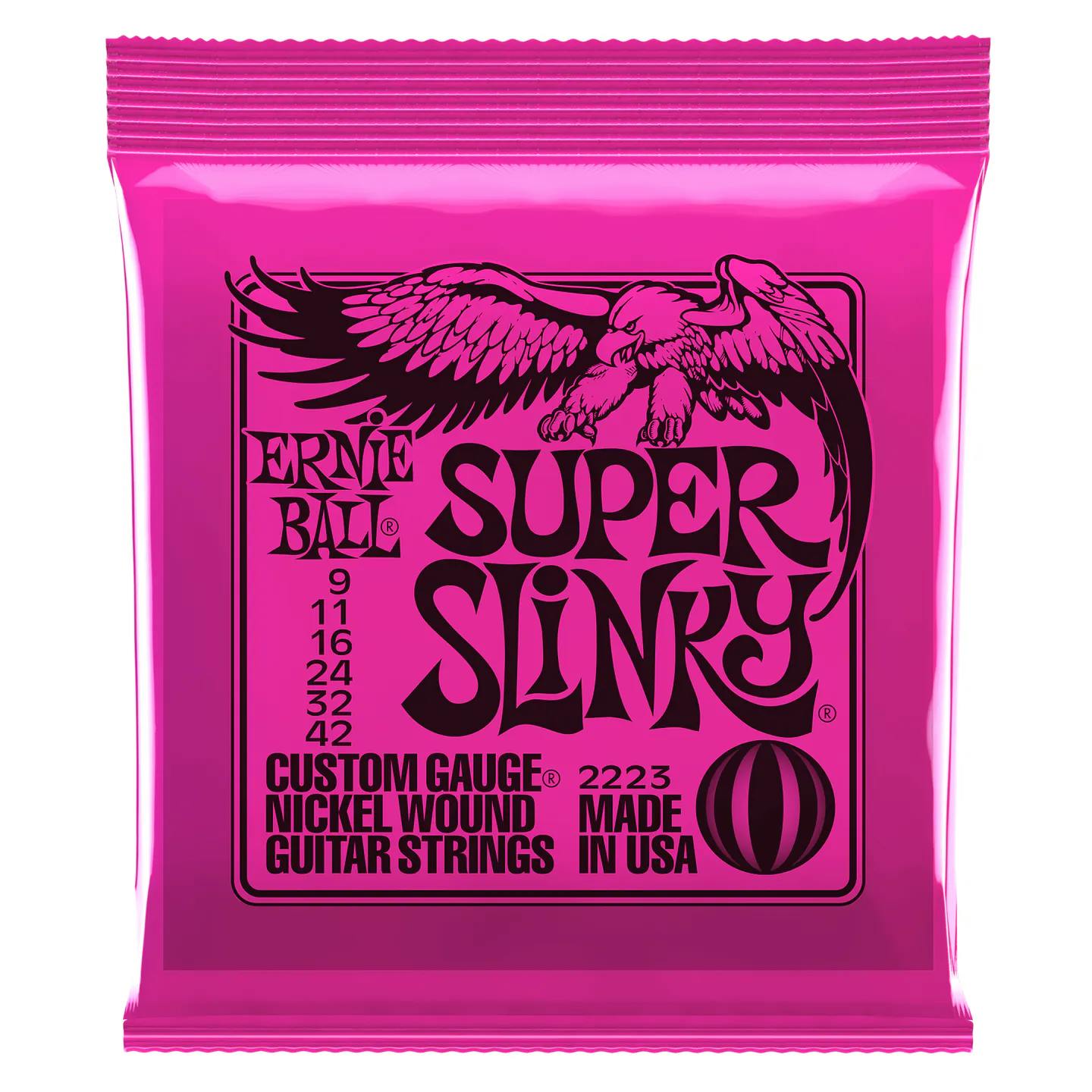

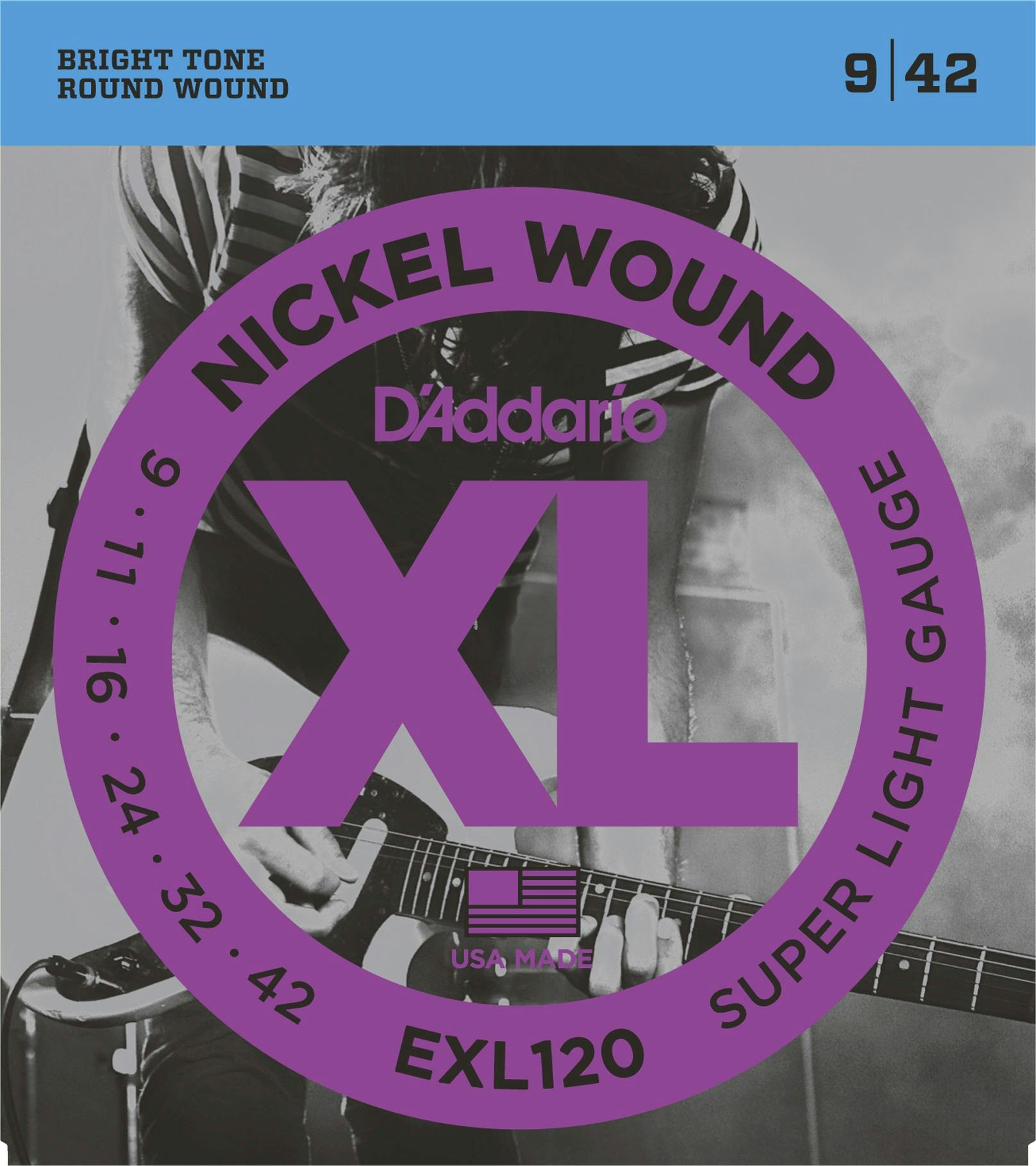
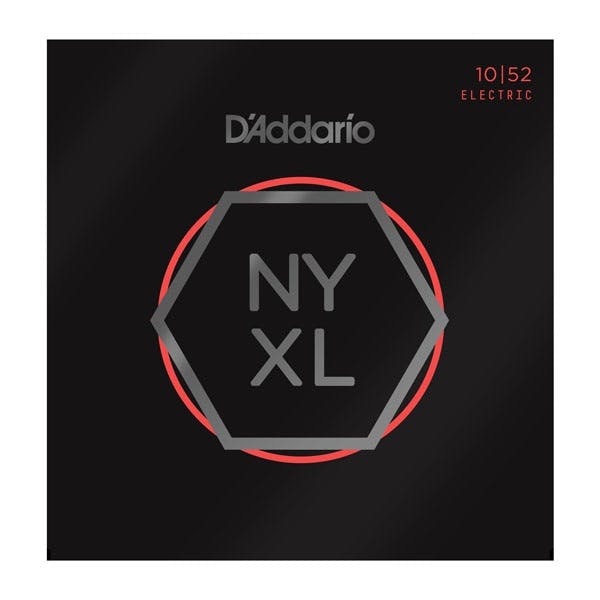
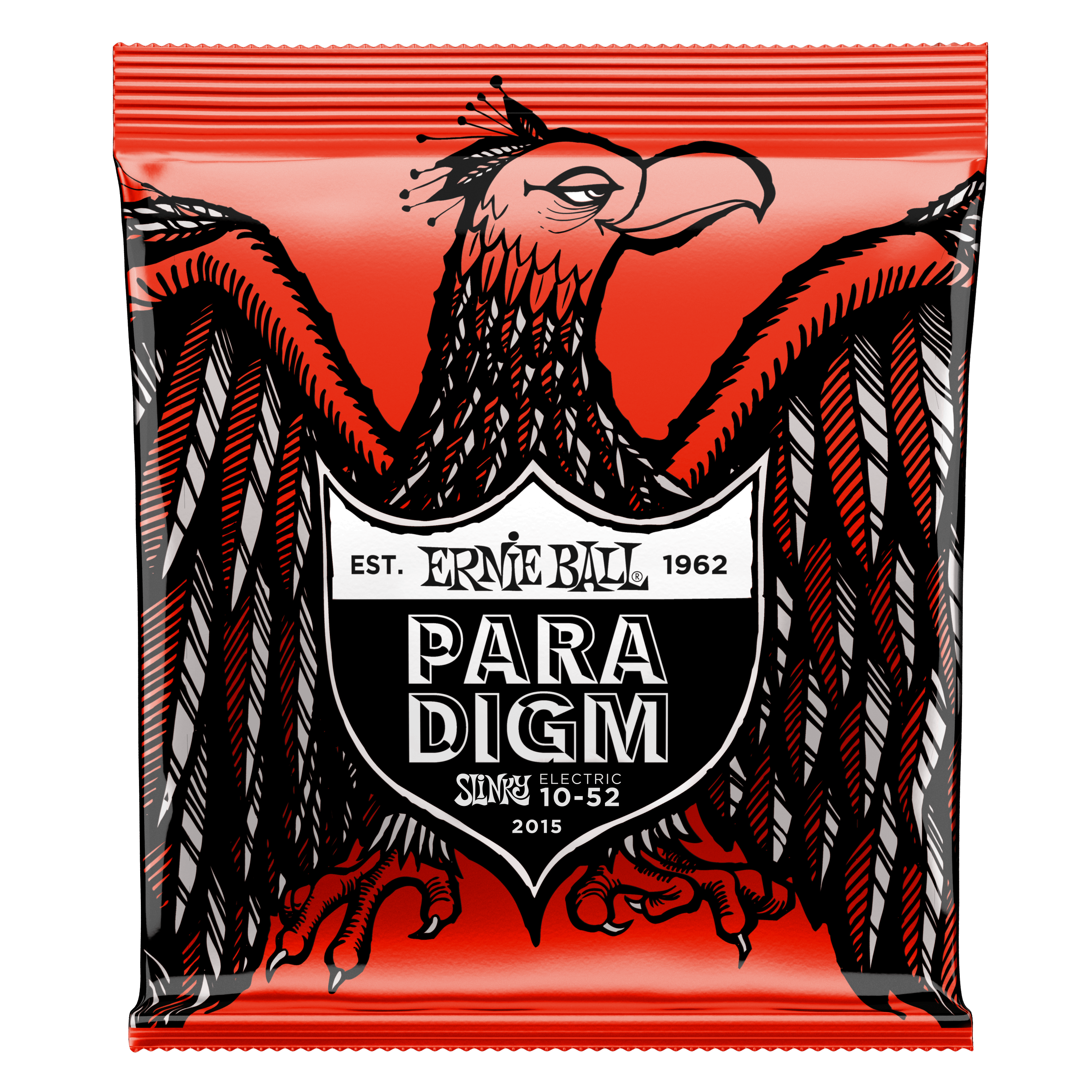



Responses & Questions